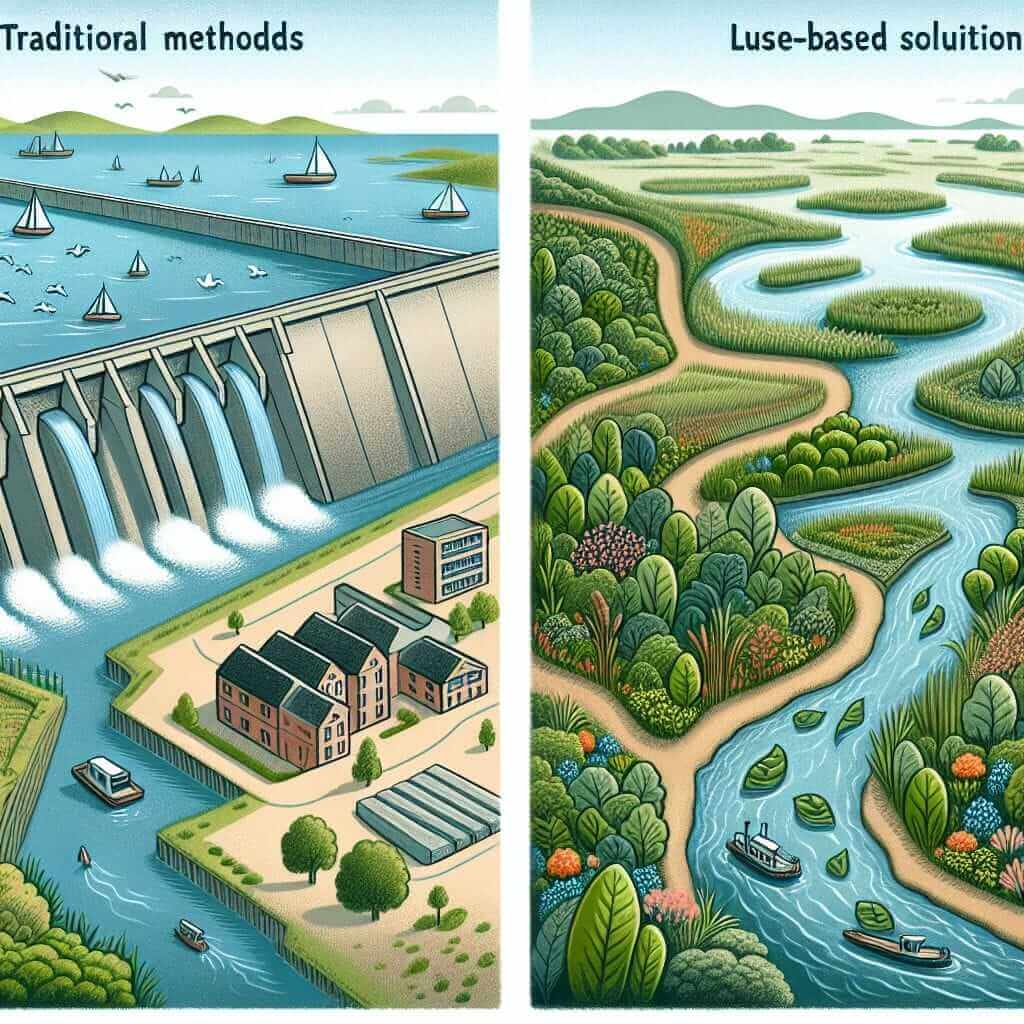As an IELTS instructor with over two decades of experience, I’ve guided countless students towards their desired band scores. One recurring theme in the IELTS Reading test, particularly in passages with an environmental focus, is the concept of flood management. Understanding this theme, as explored in articles like “Can We Hold Back the Flood?”, can be key to unlocking those crucial correct answers.
Decoding “Can We Hold Back the Flood?” in IELTS Reading
This intriguing title often signals a passage exploring humanity’s complex relationship with floods. You might encounter discussions on:
- Causes of Increased Flooding: The text may delve into factors like climate change, deforestation, and urbanization, examining their roles in intensifying floods.
- Traditional vs. Modern Flood Control: Expect a comparison between historical approaches (e.g., levees and dams) and more contemporary, often nature-based solutions (e.g., restoring wetlands).
- Social and Economic Impacts: The passage might analyze the wide-ranging effects of floods on communities, infrastructure, and economies.
- Adaptation and Mitigation Strategies: The text may present arguments for proactive measures to mitigate flood risks and adapt to changing climates.

Mastering the Passage: Tips and Strategies
To effectively tackle an IELTS Reading passage like “Can We Hold Back the Flood?,” keep these strategies in mind:
-
Skim for Structure: Quickly identify the passage’s main sections and their purposes. Look for headings, subheadings, and topic sentences to guide your understanding.
-
Identify Key Vocabulary: Circle or underline unfamiliar words related to floods, engineering, or environmental science. Use context clues to infer their meanings.
-
Focus on Facts and Opinions: Distinguish between factual information (e.g., statistics, historical events) and author opinions or arguments.
-
Practice Active Reading: Engage with the text by underlining key ideas, writing brief summaries in the margins, and formulating questions as you read.
Example from a Sample IELTS Reading Passage
Let’s say the passage contains a paragraph like this:
“While large-scale dams were once considered the primary defense against floods, recent research suggests a more nuanced approach. Restoring natural floodplains, for example, can provide a buffer zone, absorbing excess water and mitigating flood peaks. This shift in perspective emphasizes the need for sustainable, integrated flood management strategies.”
Question: What is the main idea of this paragraph?
Answer Choices:
(A) Dams are ineffective in controlling floods.
(B) Natural floodplains are the only solution to flooding.
(C) Modern flood management requires a combination of approaches.
(D) Research has proven that dams are detrimental to the environment.
Correct Answer: (C)
Explanation: The paragraph highlights a shift from solely relying on dams to incorporating nature-based solutions like floodplain restoration. This indicates a need for diverse strategies, making (C) the most accurate choice.
Ace Your IELTS Reading
Remember, success in the IELTS Reading section hinges on efficient reading skills, vocabulary acquisition, and the ability to extract key information. By understanding the themes and arguments often presented in passages like “Can We Hold Back the Flood?,” you’ll be better equipped to navigate the complexities of the text and confidently answer those all-important questions. Good luck!